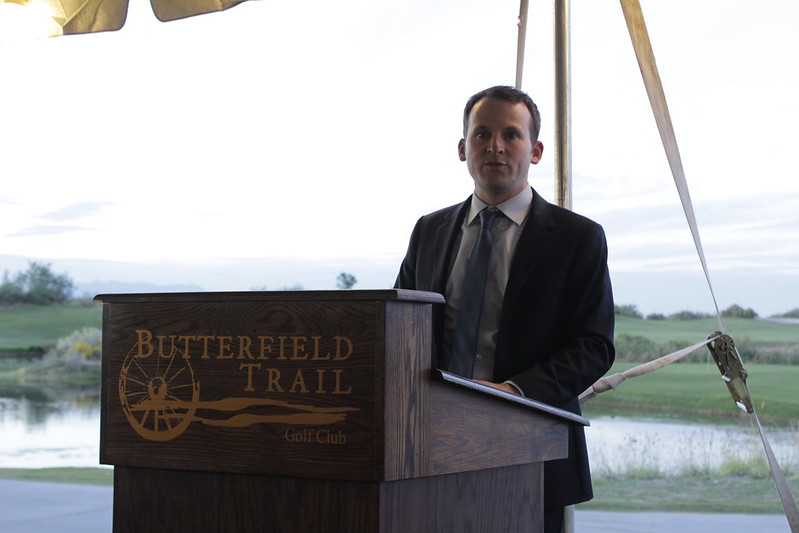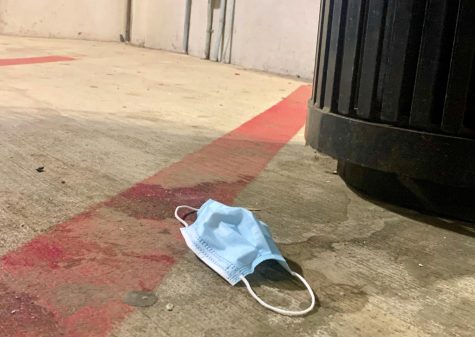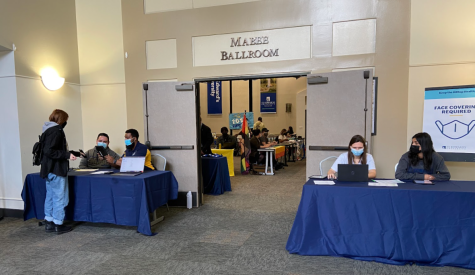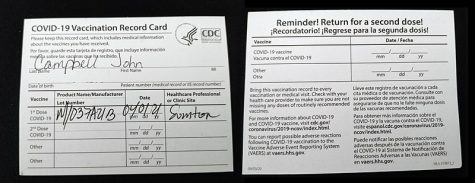Cities across Texas implement a variety of safeguards to protect the public
Butterfield Trail Golf Course in El Paso opened in 2007. The 18-hole course has permanently closed due to economical damage caused by COVID-19.
“Stay at home” is a phrase Texans have become all too familiar with lately. From the wide open fields to the crowded cities, towns from every region of Texas are taking precautions to keep residents safe and healthy. Mayors are making decisions in the best interest of both their residents and economies.
Austin extended their stay-at-home order, which mandated the usage of fabric-face masks when out in public, until May 8. Services like Austin Public Health’s Women, Infants and Children (WIC) have been a huge component of helping out Travis and Bastrop County residents. With the current issue of Texans buying in bulk, many have been left without the necessities to continue on with a healthy life.
WIC recently placed pink stickers on products in grocery stores so “participants [can] have more purchasing options for milk, bread, rice, pasta and eggs, and canned fruits and vegetables have been added to the food package,” according to the City of Austin site.
Small towns like Lexington in Lee County, with a population of 1,900, are following Gov. Greg Abbott’s executive stay-at-home order. However, they strongly encourage their city churches to find safe ways to stay open, as they value the importance of faith during these times. As of April 1, Lee County health official Dr. Laura Birnbaum notified officials of two residents who tested positive for COVID-19. County Judge Paul Fischer then encouraged “compliance with Governor Abbott’s Emergency Order as to social distancing and essential activities outside the home to prevent the further spread of the virus.”
In San Antonio’s Bexar County, 890 cases of the coronavirus are confirmed and 37 deaths have been reported. This recent report has not stopped popular public parks from remaining closed. After Easter weekend, the city reopened parks, allowing people to walk the trails, sit at the tables and share the grills. “I don’t think it’s a very good idea. Opening parks back up will give the people temptation. San Antonio isn’t ready, there is still much danger,” SEU freshman and San Antonian Maya Diaz said.
The University of Texas at San Antonio (UTSA) has been productive with research and forms to assist the city and its people. On April 15, the university’s Institute for Economic Development set in motion the Small Business Development Center COVID-19 Business Recovery Accelerator (SBDC COBRA). The center will offer counseling and other resources to pursue loans from the financial industry and begin recovering. “COBRA is the only recovery accelerator of its kind in Texas to help stabilize and rebuild the small-business economy,” according to an article from USTA Today.
In Zapata, a town outside of Laredo, county leaders took an extra precaution in keeping their near 1,500 residents safe and healthy. Per Zapata County Judge Joseph Rathmell, a “youth curfew” was established and has been in place since March 27. This order prohibits children under the age of 17 from all areas of the county to be out of their homes between 10 p.m. and 6 a.m. The order does not prohibit them from seeking necessary medical assistance. According to the order, “Any person who violates a provision of this order shall be guilty of a Class C Misdemeanor and subject to a fine up to $500.”
El Paso County recently lost Deputy Jeff Hopkins to the coronavirus. The death was later announced as “lost in the line-of-duty,” according to the sheriff’s office. As of April 15, the city confirmed 47 new cases, adding up to 393 total cases and six deaths. A beloved golf course just outside of the city airport had to close on April 15 due to loss of a large sum. Bringing in $1 million yearly, Butterfield Trail Golf Course was no longer making money, most notably due to the plummet of air travel.
While cities have implemented different safety regulations, one thing that remains consistent across Texas is the support for each other throughout these seemingly unbearable times.
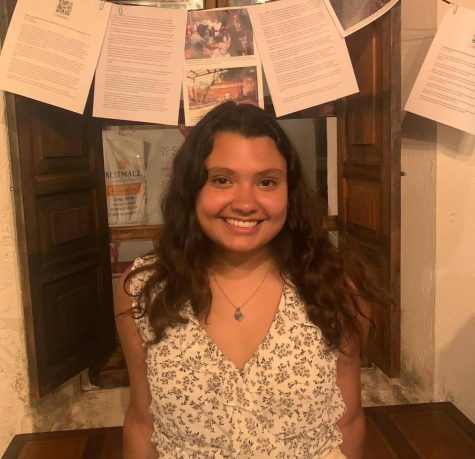
Nina Martinez is a senior at St. Edward’s University, earning her Bachelor’s in Writing and Rhetoric. Martinez has reported and edited for Hilltop...


